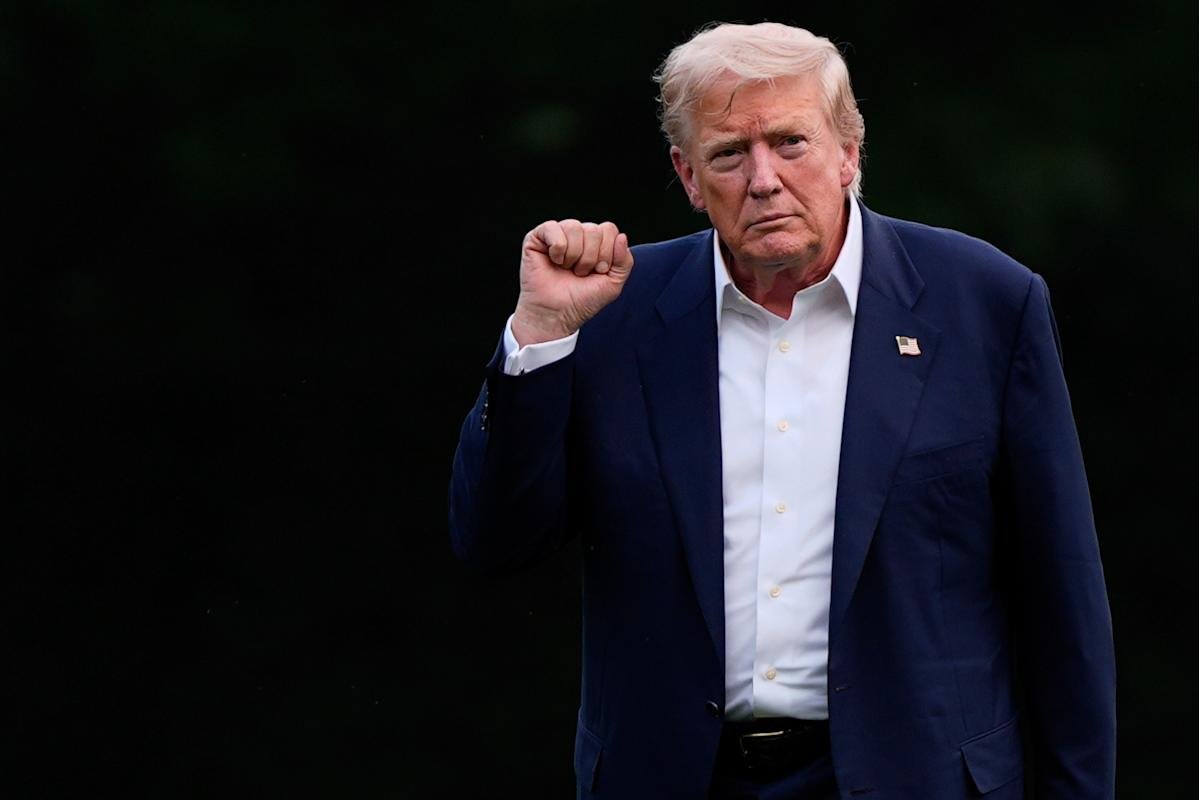Breaking News
Trump back in court Thursday to defend the tariffs he plans to impose Friday

An imposing threat to President Trump’s “Liberation Day” tariffs will be tested by a panel of Washington, D.C., federal appeals court judges on Thursday, less than 24 hours before those duties are scheduled to take effect for countries around the world.
In a case that is moving quickly through the judicial system, a group of small business importers and 12 states will clash with the US Justice Department over the president’s authority to impose the tariffs without authorization from Congress.
The Circuit Court of Appeals for the Federal Circuit, which is hearing the case, is reviewing a lower court’s prior decision in May to strike down the president’s tariffs. That ruling was put on hold pending a decision from a panel of appeals court judges, which is not expected before the additional tariffs take effect Friday.
The tariffs that go into effect tomorrow were originally unveiled on April 2, which Trump dubbed “Liberation Day,” and scheduled to start on April 9 but were then delayed 90 days and again to Aug. 1. Some of the rates have been adjusted after negotiations with major trading partners.
Read more: 5 ways to tariff-proof your finances
The courtroom showdown on Thursday will move businesses, investors, and consumers closer to answering a critical legal question that is materially affecting their bottom lines: Can the president unilaterally impose wide-ranging, global tariffs by invoking a law enacted in 1977 to protect the US from international threats?
That law, known as “IEEPA” — the International Economic Emergency Powers Act — authorizes the president to “regulate” international commerce after declaring a national emergency.
The appeals court judges are tasked with evaluating whether the president’s declared national emergencies — the flow of illegal fentanyl and illegal immigration into the US — are the type of emergencies that Congress intended when it created the law.
And if so, whether the “Liberation Day” tariffs are the type of regulation that Congress intended to address those emergencies.
Read more: The latest news and updates on Trump’s tariffs
Ilya Somin, the lawyer for the small business importers that successfully challenged Trump’s tariffs before the US Court of International Trade in May, argued in a blog post earlier this month that a Supreme Court decision issued in June titled FCC v. Consumers’ Research strengthens the challengers’ opposition to the tariffs.
The court held that Congress legally delegated authority to the Federal Communications Commission to impose fees on telecommunications companies.
Story Continues
